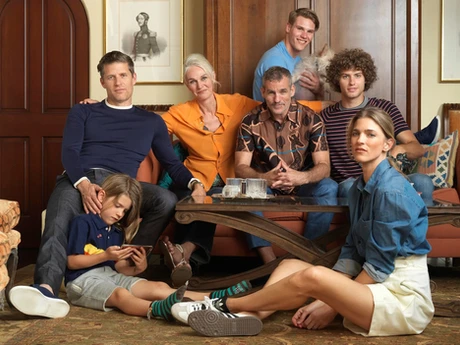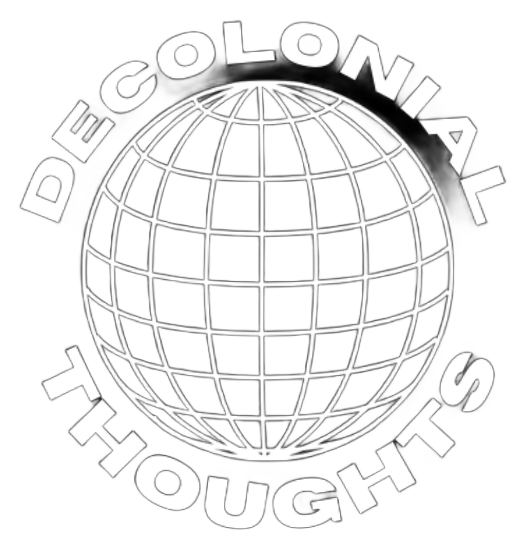
In order to make such an unpalatable and difficult topic as colonisation more bite-sized, we compare the Three C’s of British colonisation of Africa with the dynamics of a patriarchal nuclear family. You might ask yourself why… the simple answer is that families can be messed up and difficult to navigate but we do it anyway… the more academic response is that family is a universal experience, a bond that transcends choice and circumstance. We are born into these systems, clumped together by the capriciousness of biology and tied together by the weight of tradition and tasked with navigating the complexities of love and loyalty, despite reason. Unfortunately for us, colonisation has marked its name in the same way — we can’t avoid it, but can we transform it?
We see this as a family portrait, both familiar and unsettling, in which power structures, both within the family and across the nations, can distort the bonds of humanity. As Joan Didion once wrote, “We tell ourselves stories in order to live.” By retelling the story, we hope to add into the margins echoes of our own struggles, and our own desires for a world that is more just, more equitable, and more humane. Through stories, we seek to confront the ways in which we have internalised the dynamics of colonisation and to forge a new path, one that honours the dignity and autonomy of all people, regardless of their place in the family or the world.
The Father
In this family, Father grew up in a wealthy family because of Grandfather Slavery, which instilled in him the belief that success and progress were solely measured by financial gain. In his mind, the currency of money came hand-in-hand with power which is his consistent weapon of choice to reinforce his dominance over his family. He believes in dominance and practises exploitation to attain money. Profit is the only priority and ethics is for suckers. He leads the family with a single-minded focus on relentless pursuit of ‘growth’, rewarding and punishing the family with materialistic milestones. The certain consequences of financial insecurity and turmoil are punishment for veering outside of his rule.
The siblings have access to his wealth as long as they never question the origin, always act to preserve it, and publicly support the mother’s teaching that hard work makes a good and deserving person.
The Mother
Mother has been raised in a devout and religious home where Grandmother Spirituality made a clear and strong emphasis on the importance of love and forgiveness. The undertones of hierarchy decree some as more deserving of these virtues than others. Instead of the earthen shrines where love is something you make with your hands, she has a lifeless statue of a blue-eyed, blonde-haired Jesus to surveil the morality of the family.
Unfortunately, there was no meet cute of when “mummy met daddy” but more of an unceremonial matching. Father’s dominance forced Mother to hide parts of herself to be a more palatable, stiff-lipped, and broken version of herself for the sacred family she was taught to protect at all costs, leaving her with misled duty and responsibility. Mother’s upbringing led her to believe that enduring hardship and conflict was another holy virtue, making her reluctant to challenge authority—even when unjust, even when it is her own voice breaking the spirit.
Mother’s tongue is the point of supernatural truth and that music she remembers is an often sought comfort, but she struggles to provide the guidance needed to navigate their father’s rule. Her conflicting messages about love and obedience create confusion, as the siblings grapple with their loyalty to her and their desire for freedom. The false cloak of red-blotched peace is her only weapon to mediate conflict, but her inability to confront her husband’s abusive behaviour leaves her often dissociated from the beliefs she teaches and manipulative in her misdirection of the children’s affections.
The Siblings
The final part of your family are the ones that teach you the practice of hate, love, and the malleable line drawn between equality and inequality. Each of the children remain reflections of the various members of a civilsation and the layers of favourites, disappointments, legacy holders and rebels that have from the inconsistencies of their parental rearing.
Your beloved siblings are often reflections in the prism of interpretations that refract the values, morals and conflict of Mother and Father’s lessons. We are acutely aware of how the dynamic of our family evolves and shapes our home lives and experience and impact it has on each of us in the family, balancing the teachings of mother’s moral compass with the blatant controversy of her compliance. As children we all have the choice to resent or benefit from Father’s resilient ambition for money and power as we seek approval and safety in Mother’s comfort and compliance.
So then, who are you?
As children, how do we decide which of our parents we want to lead us with their blatant paradox of what we are told and what we witness? We are now at a place of recognising how our journey towards liberation from this family’s heritage requires the untangling of complexities of love, power and morality.
Are you Father Commerce, doing everything it takes for the falsehood of financial stability through exploitation? Are you Mother Christianity, clinging to false comfort of obedience and the illusion of moral superiority? Or are you just another child in Civilisation, screaming to be heard in the cacophony of parental demands and societal expectations. Is it possible to break free and start afresh? Perhaps you have grown up in a world already being remade by other family members, and so feel less affected by these myths. The nuclear family itself is a ‘norm’ we are encouraged to view as correct, or better, when it often falls short of the support we need.
Perhaps we can dissolve some of the polarisation that occurs when reckoning with these systems. More often than not, we are not fully outside of these systems, we cannot easily make a life without money or debt (however bad they might be) and while we can dismantle the oppressive structures of religious guilt, shame, and degradation we grew up with, this is still the starting point. Especially as we look to organise with others against exploitation or for better forms of justice, we think it’s important to consider that the very way we think about relating to each other, dealing with conflict, decision-making, and even hierarchy often reinforces the very power structures we seek to overthrow. That’s where even the concept of ‘civilised’ is as much an opportunity for us to rethink our world as new monetary systems. In reality there is an interpretive dance with the nuances of the colonial structures that we must set the tempo and tune.
We won’t be able to solve it all because the old echoes of the empire would still live in our species. While we can be better by nature, the way in which our growth has been nurtured is marked by Colonisation — whether it’s indoctrination or marginalisation for not following the precepts of debt, wage labour, obedience, discipline, white-supremacy, and so on. Perhaps domination and colonisation is in the blood of those we love, maybe even our own. The question we have for the work of decolonisation is: Can love be a transformative and redemptive force for the world we want to live in? Not like martyrdom or acquiescence the Mother teaches. To abolish these systems, how do we maintain the dignity of others, those we will have to learn to live in community with? How do we hold others accountable, better negotiate necessary boundaries, create space and distance when needed, and preserve our integrity when the inheritance of colonialism makes them (or us) incapable of empathy?
Unfortunately, this will always be part of our history. We cannot erase it. We will forever know that this weird and absurd way of being is an evil humans are capable of, we know how, it runs in the family. How do you cut off a part of your history without cutting off a part of yourself? By embracing the reality and interrogating the extent of its indoctrination, we can cultivate the love, the courage, and the requisite skill to transform it. This is also how we see the work of nature. Things are not wasted or shut off, they decay and are transformed into new living things. This is the story of our greater family.
Bibliography
- The Philosophy of Colonialism: Civilization, Christianity, and Commerce | Violence in Twentieth-Century Africa
- Debt: The First 5,000 Years – David Graeber
- STIAS Public Lecture Series 2023: Kopano Ratele & Glenn Adams Full Lecture
- All About Love: New Visions * bell hooks Books
- The wage labour system is based on slavery laws & we should can it – Renegade Inc
- Social Transformation Project |
- Emergent Strategy – adrienne maree brown
- From Christian brother to native: Claiming and rejecting Christianity, commerce, and civilization in early twentieth-century Natal — writer’s note [ we disagree with many of the viewpoints, interpretations, and biases expressed in this paper, but it still holds a lot of informative historical stories.]
- Undergraduate Honors Thesis | Reappropriating Empire: A Study of the West African Students’ Union (1925-1960) | ID: qf85nb66k | CU Scholar
- The African Slave Trade — Thomas Foxwell Buxton
